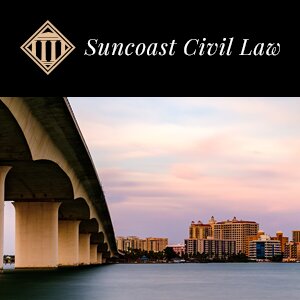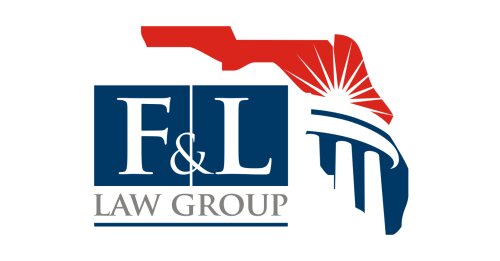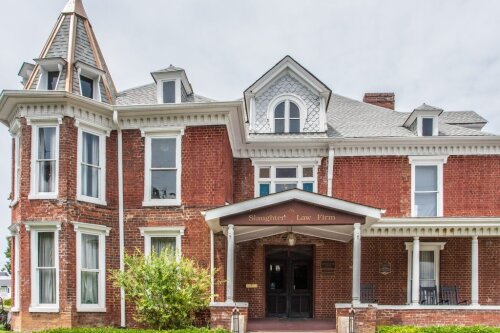Best Elder Abuse Law Lawyers in Florida
Share your needs with us, get contacted by law firms.
Free. Takes 2 min.
Or refine your search by selecting a city:
List of the best lawyers in Florida, United States
About Elder Abuse Law in Florida, United States
Elder abuse law in Florida addresses the protection and rights of adults aged 60 and over who may be subject to abuse, neglect, or exploitation. These laws exist to safeguard vulnerable seniors from physical harm, emotional distress, financial exploitation, and neglect from caregivers or institutions. Florida's statutes define and criminalize various forms of elder abuse, and both civil and criminal remedies are available for victims and their families. The state is especially attentive to the unique needs and risks faced by its large elderly population.
Why You May Need a Lawyer
There are several situations where you or a loved one may require legal help in the context of elder abuse in Florida. Common scenarios include:
- Suspecting or witnessing physical, emotional, or sexual abuse of an elderly person in a nursing home, assisted living facility, or private residence
- Discovering unexplained injuries or signs of neglect, such as poor hygiene or malnutrition
- Concern about financial exploitation, including unauthorized use of funds, forged signatures, or coerced changes to wills and trusts
- Difficulty in getting authorities or care facilities to respond to reported abuse
- Conflicts regarding guardianship or power of attorney where the elder's best interests are at risk
- Pursuing compensation for injuries, losses, or emotional harm suffered by an elderly relative
- Navigating complex investigations by state agencies or law enforcement
- Defending yourself against false allegations of abusing or neglecting an elder
In these cases, a lawyer experienced in elder abuse law can help protect rights, ensure proper reporting and documentation, and pursue legal action to stop the abuse and obtain justice.
Local Laws Overview
Elder abuse laws in Florida are primarily governed by Chapter 415 of the Florida Statutes, known as the "Adult Protective Services Act." Key aspects relevant to elder abuse law in Florida include:
- Definition of Abuse: Abuse includes any willful act or threatened act by a caregiver that causes or is likely to cause significant impairment of a vulnerable adult's physical, mental, or emotional health.
- Neglect: Neglect occurs when a caregiver fails to provide the care, supervision, and services necessary to maintain the physical and mental health of the elder.
- Exploitation: Exploitation involves obtaining or using, or endeavoring to obtain or use, an elderly person's funds, assets, or property through deception, intimidation, or undue influence.
- Mandatory Reporting: Florida law requires anyone with knowledge or reasonable cause to suspect elder abuse, neglect, or exploitation to report the situation to the Florida Abuse Hotline. Failure to report can result in criminal charges.
- Protective Investigations: The Florida Department of Children and Families (DCF) investigates reports of elder abuse and can initiate emergency interventions if necessary to protect the victim.
- Civil and Criminal Consequences: Abusers may be subject to both civil lawsuits and criminal prosecution, depending on the circumstances and severity of the abuse.
- Institutional Accountability: Facilities such as nursing homes and assisted living facilities have specific duties to protect residents, and violations can result in significant penalties and loss of licensure.
Frequently Asked Questions
What constitutes elder abuse under Florida law?
Elder abuse includes physical harm, emotional or psychological abuse, sexual abuse, neglect, and financial exploitation of adults aged 60 and over by caregivers, family, or third parties.
How do I report suspected elder abuse in Florida?
Reports should be made to the Florida Abuse Hotline, which operates 24 hours a day. You can call or submit a report online. Anyone in Florida is legally obligated to report suspected abuse.
Who is considered a "vulnerable adult" in Florida?
A "vulnerable adult" is anyone aged 18 or over whose ability to perform daily activities or care for themselves is impaired due to a disability, illness, or aging.
What are the penalties for committing elder abuse in Florida?
Penalties depend on the severity of the abuse. They can range from misdemeanor to felony charges, including substantial prison time, fines, and restitution. Civil lawsuits may also be filed for damages.
Can I file a lawsuit on behalf of an abused elder?
Yes, legal guardians, family members, or appointed representatives may file lawsuits on behalf of abused elders to recover damages for injuries, pain and suffering, and other losses.
What if the abuse took place in a nursing home?
Elder abuse laws apply to nursing homes and long-term care facilities in Florida. Facilities have a duty of care, and violations can lead to administrative action, civil liability, and criminal charges.
How do investigations of elder abuse occur in Florida?
The Department of Children and Families (DCF) investigates reports of elder abuse. Investigators may conduct interviews, assess living conditions, and coordinate with law enforcement if criminal conduct is suspected.
Can an elder refuse intervention or help?
Generally, competent adults have the right to refuse services unless the abuse poses immediate and significant risk. Courts may intervene if the elder is deemed legally incapacitated or unable to protect themselves.
What signs should prompt me to suspect elder abuse?
Unexplained injuries, sudden changes in financial status, withdrawal, depression, poor hygiene, or fearfulness around certain individuals may be warning signs of abuse or neglect.
How can a lawyer help in an elder abuse case?
A lawyer can guide you through the reporting process, help gather evidence, represent your interests in court, coordinate with state agencies, and pursue financial compensation or protective orders as needed.
Additional Resources
Those seeking further information or assistance on elder abuse issues in Florida may benefit from the following organizations:
- Florida Department of Children and Families, Adult Protective Services
- Florida Long-Term Care Ombudsman Program
- Florida Agency for Health Care Administration (AHCA)
- Florida Bar Association, Elder Law Section
- Local law enforcement agencies
- Local Area Agencies on Aging
- National Center on Elder Abuse (NCEA)
- Legal services and elder advocacy organizations in your county
Next Steps
If you suspect elder abuse or need legal assistance, act promptly to protect the safety and well-being of the elder. Your immediate steps should include:
- Report suspected abuse to the Florida Abuse Hotline without delay
- Seek medical attention for any injuries if necessary
- Document any signs, symptoms, or patterns of abuse or neglect
- Consult with a lawyer who specializes in elder law or elder abuse cases for legal guidance
- Cooperate with state investigators or law enforcement officers
- Follow up with local advocacy groups or trusted organizations for ongoing support and information
Taking these measures can make a significant difference in stopping abuse, holding violators accountable, and ensuring that the rights of vulnerable elders in Florida are protected.
Lawzana helps you find the best lawyers and law firms in Florida through a curated and pre-screened list of qualified legal professionals. Our platform offers rankings and detailed profiles of attorneys and law firms, allowing you to compare based on practice areas, including Elder Abuse Law, experience, and client feedback.
Each profile includes a description of the firm's areas of practice, client reviews, team members and partners, year of establishment, spoken languages, office locations, contact information, social media presence, and any published articles or resources. Most firms on our platform speak English and are experienced in both local and international legal matters.
Get a quote from top-rated law firms in Florida, United States — quickly, securely, and without unnecessary hassle.
Disclaimer:
The information provided on this page is for general informational purposes only and does not constitute legal advice. While we strive to ensure the accuracy and relevance of the content, legal information may change over time, and interpretations of the law can vary. You should always consult with a qualified legal professional for advice specific to your situation.
We disclaim all liability for actions taken or not taken based on the content of this page. If you believe any information is incorrect or outdated, please contact us, and we will review and update it where appropriate.
Browse elder abuse law law firms by city in Florida
Refine your search by selecting a city.













